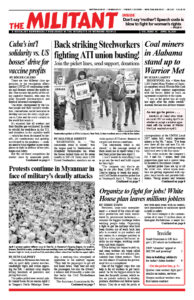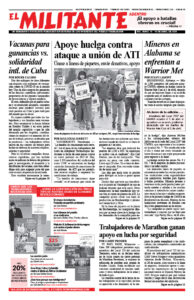Sixty-eight years ago, Dr. Jonas Salk announced he had successfully developed a vaccine for polio, which has saved millions of lives. Unlike the big pharmaceutical companies that place patents on drugs they market — to jack up the prices and reap superprofits, like they’re doing today with COVID-19 vaccines — Salk simply made his vaccine available to all of humanity.
After the announcement, CBS newsman Edward R. Murrow asked Salk, who owned the patent for the polio vaccine? “Well, the people, I would say,” replied Salk, in light of the millions of charitable donations raised by the March of Dimes that funded the vaccine’s research and field testing. “There is no patent. Could you patent the sun?”
In 1952 alone 58,000 children in the U.S. were paralyzed by polio, as well as hundreds of thousands more around the world. The impact of Salk’s vaccine in the U.S. was dramatic, reducing polio virus infections by about 95% between 1955 and 1962.
While researching and developing the vaccine, Salk was also being spied on by the FBI. The federal cop agency’s director, J. Edgar Hoover, gained access to Salk’s personnel file at the University of Michigan, where he was a researcher and assistant professor in Ann Arbor, to determine his “loyalty” and to see if his political views were too “leftist.”
A few years later, Dr. Albert Sabin developed an oral polio vaccine, which also was not patented. Its first test was in the Soviet Union, which was successful, and 77 million youths there — everyone under 20 — were vaccinated.
In 1962 the revolutionary government of Cuba used the oral vaccine to carry out an unprecedented massive nationwide effort.
In Cuba, where there was not enough available refrigeration to store a perishable vaccine, health authorities decided to vaccinate all the children in the country in just a few days. And six months later they did the same thing for the second dose. This deprived the virus of all its potential carriers, eradicating the disease from the island.
Sabin traveled to Cuba in 1967 and met with virologists to discuss joint work on future vaccines, efforts that were thwarted by the U.S. government embargo against Cuba and its revolution.

